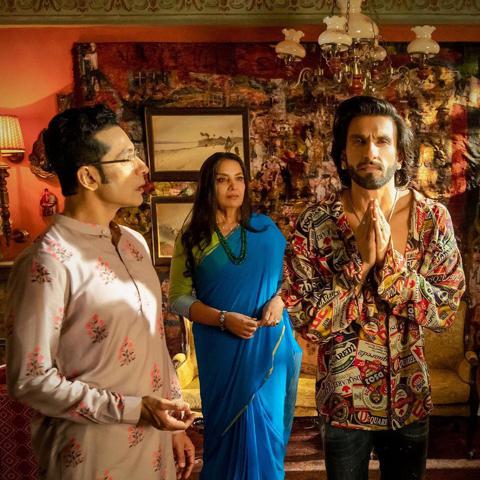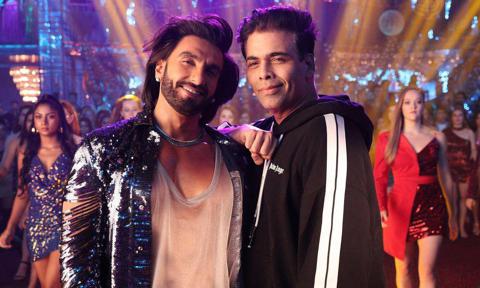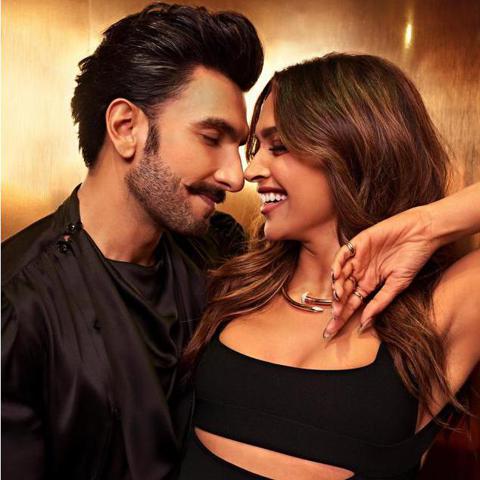
If I had a rupee for every movie I saw in the theatres last week that had the subtext of patriarchy being the true evil of our society, then I’d have two rupees, which is not a lot but it’s cool that it happened twice.
First, Greta Gerwig explored the idea through the iconic Mattel doll and her parallel universe called Barbieland, and then, we got to see the same message being explored a la Bollywood, packaged by none other than Karan Johar.

The Dharma filmmaker returned to the director’s chair after eight years for Rocky Aur Rani Ki Prem Kahaani (RARKPK) and decided to systematically shatter the very stereotypes he had glamorised through his past works. When I saw the trailer of the film, my mind immediately went to 2 States. “Another Alia Bhatt starrer, where two lovers had to contend with their vastly different cultural backgrounds and overcome their family’s disapproval to get to their ‘Happy Ever After’,” I thought to myself. And while that didn’t deter my excitement to see the movie, I also (unfairly, in retrospect) slotted it in my mind as being a mindless Bollywood affair with generic songs and decent fashion (Johar gets that right always). In fact, these arguments proved just as effective to convince my sister, who’d still been reeling from the Barbenheimer hangover.
Cut to the end credits rolling on the movie and both of us were proven wrong.

First, let me just begin by saying this movie is not everyone’s cup of tea. It may come across as too radical for those who believe in the idea that family comes above all else and should be forgiven for everything. It may also feel a bit heavy-handed for those who are used to regularly having conversations about patriarchy and feminism. But as someone who prides herself as a Bollywood buff and followed Johar’s evolution as a director, RARKPK is nothing short of brilliant.
To briefly summarise the film, it follows Rocky Randhawa (Ranveer Singh), a loud and obnoxious Punjabi man-child who is the heir to his family’s multi-crore sweets shop business, and Rani Chatterjee (Alia Bhatt), a no-nonsense Bengali journalist who is self-sufficient and not looking for love. The two meet and sparks fly as opposites attract. But the biggest hurdle in their love story comes in the form of their families who couldn’t be more different from each other. So, the two decide to start a social experiment where they switch and live with each other’s family for three months to see if they can adjust to them because, in the end, it’s all about loving your family (the core message of Kabhie Khushi Kabhie Gham, more on that below).
Johar lures you in with the familiar tropes. There are two incredibly good-looking protagonists, Manish Malhotra’s impeccable styling, chart-topping songs, and palatial homes. But once you’ve gotten comfortable with the milieu, the movie starts subverting expectations.

There’s Rocky’s sister, Gayatri (Anjali Anand), who is not so fondly known as ‘Golu’ because of her weight. She is openly told that she is a burden to the family and paraded in front of prospective grooms and their family in an attempt to marry her off. Johar has been criticised for his portrayal of characters that don’t fit society’s conventional beauty standards, for eg: Rohan from Kabhie Khushi Kabhi Gham (2001) or Anjali in his directorial debut Kuch Kuch Hota Hai (1998). Both the characters were fated to receive romantic love only after going through a makeover and emerging with classically beautiful features and zero body fat. In RARKPK, Gayatri’s self-worth is not tied to her appearance. She had always been confident and secure with how she looked, it was her family who refused to see it. Her character’s conclusion seems immensely satisfying and leaves you wishing for a similar fate for both Rohan and Anjali.
Johar also revisits the core message of K3G, which is ‘It’s all about loving your family’, which should’ve realistically been ‘Naina deserved better’. RARKPK starts off in a similar vein. Family is beyond reproach. They might be dysfunctional and cause you years’ worth of trauma but ultimately you have to forgive them because they are your family.

Spoiler Alert: This time around, Rocky and Rani both discover that their families comprise flawed humans who have made the wrong choices time and again and can’t be forgiven just because they’re related by blood.
Rocky worships the women in his family because he has seen his strict grandmother Dhanlakshmi (Jaya Bachchan) rule the family with the kind of discipline that seems straight out of Narayan Shankar’s (of Mohabbatein) wet dreams. Over the course of the movie, Rocky realises that there’s a vast bridge between fear and respect and learns how he could stand up to his grandmother and expect her to ask for forgiveness for the role she played in his mother’s misery and his family’s ultimate dysfunction.

Johar doesn’t take the easy route and let Rocky and his mother forgive his father and grandmother as he did with Yash Raichand and his sons in K3G. Rather, he highlights how difficult it is to reconcile with someone who has emotionally abused you for years, even if they are your own family member.
Coming to Bhatt’s Rani, it’s one of the most refreshing portrayals of a female character in a Bollywood movie in a long time. The fierce journalist is far from a damsel-in-distress and could have easily slid into a one-dimensional depiction of girl power but Johar gives her character a satisfying arc. She goes from being a know-it-all who has everything figured out to someone who is ready to accept that the world is not as black and white as she thought it used to be.
Much has already been written about the dismantling of Rocky’s toxic masculinity through lingerie shopping and kathak classes with Rani’s dad (the brilliant Tota Roy Chowdhury) but many have missed the importance of Rocky’s acceptance of Rani’s reluctance to jump into marriage just because they were in love.

Now hear me out. Yes, the bar is on the ground when it comes to subtle progressive messages in Bollywood films, so it’s important to highlight them when someone gets it right.
Rocky’s clear love for typical Bollywood films and primitive understanding of mature relationships led him to believe that Rani must be equally ready to jump in delight and say ‘yes’ to his well-planned marriage proposal just a few weeks after they began their relationship (or fling, according to Rani). He, predictably, loses it and storms off angrily after she rejects the proposal but the two reconcile after Rani realises she had, in fact, fallen for him.

But even then she is reluctant to marry him. When she lays down exactly why she feels their relationship might not work out in the long term (because of different family backgrounds), he doesn’t dismiss her worries, claiming that their love would conquer it all. It’s not much, but I wasn’t expecting a realistic discussion about the dynamics of the elusive ‘Happy Ever After’ peddled by filmmakers like Johar. Turns out, it was a pleasant surprise.
Is RARKPK a perfect movie? Not at all. But it surely is the right step towards the perfect 21st century love story, where the logic isn’t superseded by love.





